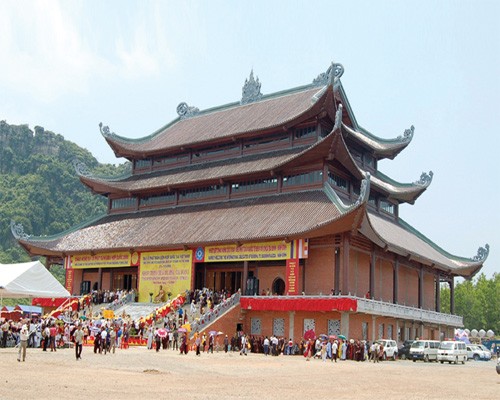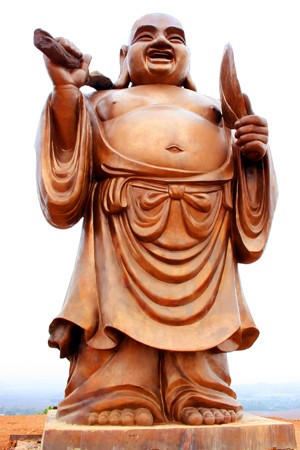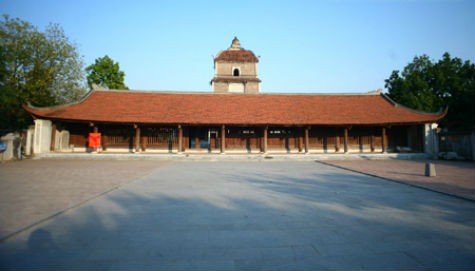(VOVworld) - The contest “What do you know about Vietnam?” has closed. On the June 30 deadline, we received from John Rutledge of China; Muhammad Ibrar, Abiha Fatima, and Hamad Kiani of Pakistan; Saroj Bharti, Soumya Bhattacharjee, Ratan Kumar Paul, Aslam Khan, Jayanta Chakrabarty, Bidhan Chandra Sanyal, and Adita Prithika of India; Grant Skinner of the UK; and Iyed Ben Brahim of Tunisia.
B: We thank you all very much for your enthusiastic response to our writing contest. Entries in different languages are being translated into Vietnamese for the jury to evaluate and compare. The judging process is difficult because the entries come from listeners in several different countries with different perspectives of Vietnam.
A: Bidhan Chandra Sanyal, a teacher in India, told us that his hobby is radio and everything related to it. His mother language is Bengali and he isn’t good at English. But he has been listening to Voice of Vietnam's English program since 2012. He wrote: “I listen to you on the radio and sometimes on the internet. Your contest “What do you know about Vietnam?” has been a thrilling experience for me. It presents a lovely image and pleasant view of Vietnam. It is a joy to learn about Vietnam. I wish VOV all the best as it seeks to promote international friendship and cooperation through its programming. It is bringing Vietnam to people far and wide over the internet and on the radio.”
B: Thank you very much for your kind words. We’ll continue to organize activities to promote Vietnam’s image and strengthen friendships with listeners worldwide. John Rutledge, a teacher in China, participated in our contest and made a recommendation. “Next time, you probably should put a limit on the size of contest entries. I noticed that entries became larger and larger over the contest period, going from 70 pages to 100 and possibly longer. Judging such long entries this year most likely has become a nightmare for you. Putting limits on the length of entries also should enhance participant creativity in all likelihood. If a person is restricted from writing more pages to get your attention, then they’ll most likely search for more creative ways to prove the superior quality of their entries.”
A: Thank you very much. We appreciate your suggestion for the next contest. This year we received some entries of nearly 100 pages, all of them nicely presented and illustrated with photos. The authors must have put a lot of time and effort into them. I personally liked your 50-page entry with Power Point supplement. The Power Point file has an eye-catching design, accurate information, many charts, and selection of photos.
B: There was some good writing by listeners in other sections. The contest this year is really competitive. I’m keeping my fingers crossed that listeners to our English program will win.
A: Now let’s check the reports we received this week. S.B Sharma of India listened to our program on Wednesday June 8 at 9.55Mhz. He heard the program with good reception. The audio was clear with only slight interference and noise. SINPO was 53344.
B: Mr. Sharman enjoyed our detailed information about Vietnam’s educational system and basic subjects, and he asked some questions about pagodas in Vietnam. How many pagodas are there in Vietnam? Which is the largest and which is the oldest pagoda? Is it possible to stay overnight in a pagoda?
A: There are approximately 14,780 pagodas across the country. Besides worshipping Buddhas, several pagodas in Vietnam also worship Mother Goddesses, Saints, and genies, who are supernatural beings of folk belief.
 |
| Bai Dinh pagoda, the largest pagoda in Vietnam |
B: Bai Dinh is the largest pagoda in Vietnam. "Bai Dinh" means "the worship of heaven and earth, Buddha, and celestial angels”. The Bai Dinh complex of historical, religious, and scenic spots has been drawing an increasing number of tourists from inside and outside Vietnam. A new pagoda was built to celebrate the 1,000th anniversary of Thang Long-Ha Noi in 2010, near the ancient Bai Dinh Pagoda, which was built by Zen Buddhist Nguyen Minh Khong in the 11th century.
 |
The 80-ton copper Mytreya Buddha statue
|
A: The pagoda holds several records besides being the largest pagoda in Viet Nam, 107ha. It has the largest gilded bronze Buddha statue in Southeast Asia, 100 tonnes, and 3 statues of Buddha in the past, present, and future, each weighing 50 tonnes. The pagoda has the two biggest bells in Southeast Asia, 36 and 27 tonnes. Bai Dinh also claims the record for the largest number of Bodhi trees in one place in Viet Nam. One hundred trees were propagated from the original tree in India where Buddha was enlightened.

Dau is the oldest Buddhist pagoda in Vietnam
(photo: thuanthanh.bacninh.gov.vn) |
B: Dâu Pagoda in Bac Ninh province, some 30 km from Hanoi, is the oldest documented Buddhist pagoda in Vietnam. The region where Dau Pagoda now stands was the capital of Giao Chi district, the political, economic, and cultural center of Vietnam. About 1,800 years ago, an Indian monk came to this area to do missionary work and founded the first Buddhist center in Vietnam, called Luy Lau. Many pagodas, citadels, and markets were soon built in the area, Dau Pagoda among them.
B: As Dau Pagoda was the biggest pagoda in the region, many monks from India and China came there to teach Buddhism to the local residents. Through many periods of destruction, restoration, and expansion, the pagoda has survived and kept its original oriental architecture style.
A: The last question was Is it possible to stay overnight in a pagoda? Pagodas are open for Buddhists and non-Buddhists alike to stay. The Buddha and Bodhisattva never abandon anyone. They always try to care for all people, and pagodas provide shelter and food to anyone in need. Passers-by, beggars, orphans, and pilgrims can ask to stay in a pagoda. Many pagodas in Vietnam temporarily take in orphans, elderly people with no family, and sick people.
B: We received phone calls from Amir Jameel of Pakistan on Monday and Tuesday. Thank you very much, Amir, for your warmth and positive feelings for VOV’s broadcasters. Our office hours are not fixed because we often have to go into the studio or go outside to cover a story. You can call our office any time that is convenient for you because we always have somebody on duty here.
A: Thank you once again for listening to VOV and sending us your feedback. Our address is: English section, Overseas Service, Radio Voice of Vietnam, 45 Ba Trieu Street, Hanoi, Vietnam. Our email address is englishsection@vov.org.vn. You can listen to the program again at our website www.vovworld.vn. Good bye until next time.